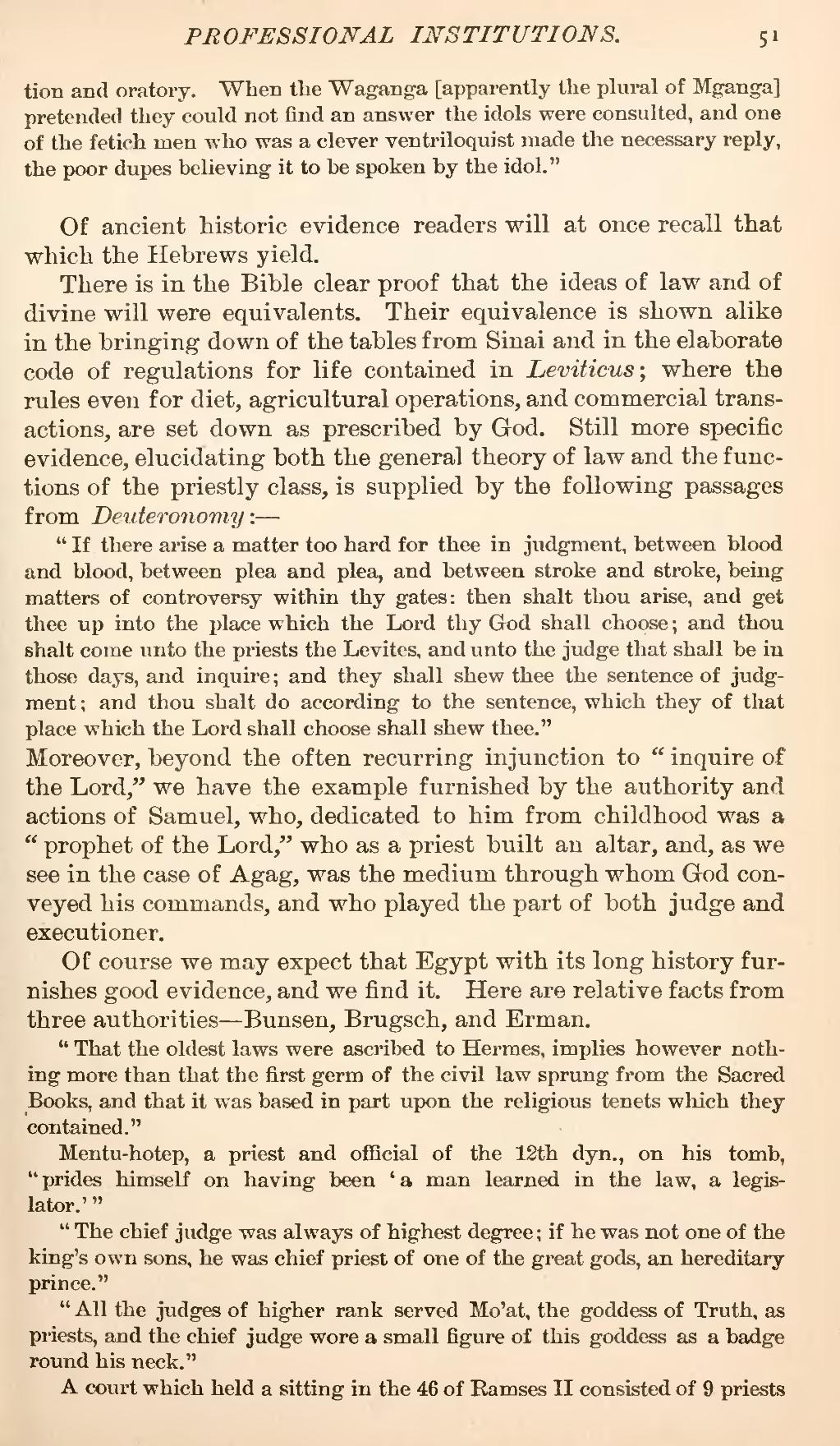Of ancient historic evidence readers will at once recall that which the Hebrews yield.
There is in the Bible clear proof that the ideas of law and of divine will were equivalents. Their equivalence is shown alike in the bringing down of the tables from Sinai and in the elaborate code of regulations for life contained in Leviticus; where the rules even for diet, agricultural operations, and commercial transactions, are set down as prescribed by God. Still more specific evidence, elucidating both the general theory of law and the functions of the priestly class, is supplied by the following passages from Deuteronomy:—
Moreover, beyond the often recurring injunction to "inquire of the Lord," we have the example furnished by the authority and actions of Samuel, who, dedicated to him from childhood was a "prophet of the Lord," who as a priest built an altar, and, as we see in the case of Agag, was the medium through whom God conveyed his commands, and who played the part of both judge and executioner.
Of course we may expect that Egypt with its long history furnishes good evidence, and we find it. Here are relative facts from three authorities—Bunsen, Brugsch, and Erman.
Mentu-hotep, a priest and official of the 12th dyn., on his tomb, "prides himself on having been 'a man learned in the law, a legislator.'"
"The chief judge was always of highest degree; if he was not one of the king's own sons, he was chief priest of one of the great gods, an hereditary prince."
"All the judges of higher rank served Mo'at, the goddess of Truth, as priests, and the chief judge wore a small figure of this goddess as a badge round his neck."
A court which held a sitting in the 46 of Ramses II consisted of 9 priests